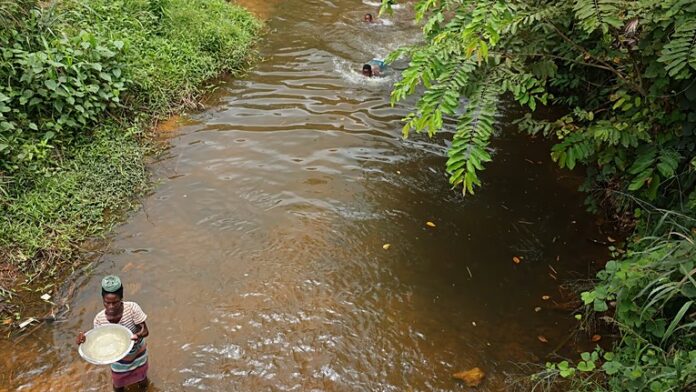
Illegal gold mining—known locally as galamsey—has surged across Ghana, threatening the country’s environment, economy, and social cohesion. As one of the world’s top gold producers, Ghana faces a paradox: while gold promises wealth, its unregulated extraction is poisoning rivers, destroying forests, and dividing communities.
In the Western North Region, the town of Jema has emerged as a beacon of resistance. Home to about 15,000 people, Jema banned all mining on its land in 2015, leveraging customary law powers granted to local chiefs. Now, a 14-member task force known as the Jema Anti-Galamsey Advocacy (JAGA) patrols the forest reserve and waterways, searching for signs of illegal activity—discolored water, forest clearings, and makeshift mining camps.
Founded with support from local Catholic priest Joseph Kwame Blay, JAGA has become a symbol of community-led environmental protection. “Jema people have seen this as a legacy,” Blay says. “That is our slogan now – Jema, no galamsey.”
But the fight is far from easy. JAGA president Patrick Fome reports threats from locals who view the task force as an obstacle to survival. “We are depriving them of their own work – that’s what they all rely upon – so they see us as enemies,” he explains.
The economic backdrop is grim. Nearly 39% of Ghanaian youth are unemployed, and declining agricultural profits have pushed many toward illegal mining as a last resort. The Ankobra River, once a lifeline for fishing and farming, now runs grey and toxic—polluted by cyanide and mercury used in galamsey operations.
Despite the risks, JAGA claims success. Their 450-square-kilometer territory boasts relatively clean waterways, a rare achievement in a country where illegal miners operate in 44 of 288 forest reserves. Yet the broader picture remains troubling: Ghana has lost over $11 billion to gold smuggling in the past five years, according to Swissaid.
National efforts are underway. President John Mahama, who assumed office in January, has launched a government task force to combat illegal mining. However, he has resisted calls for a state of emergency, arguing that other approaches must be exhausted first.
As Ghana grapples with the galamsey crisis, Jema’s story offers both hope and a warning. Without economic alternatives and stronger enforcement, the battle against illegal mining may remain an uphill climb—one fought not just in parliament, but in the forests and rivers where communities like Jema are taking a stand.
